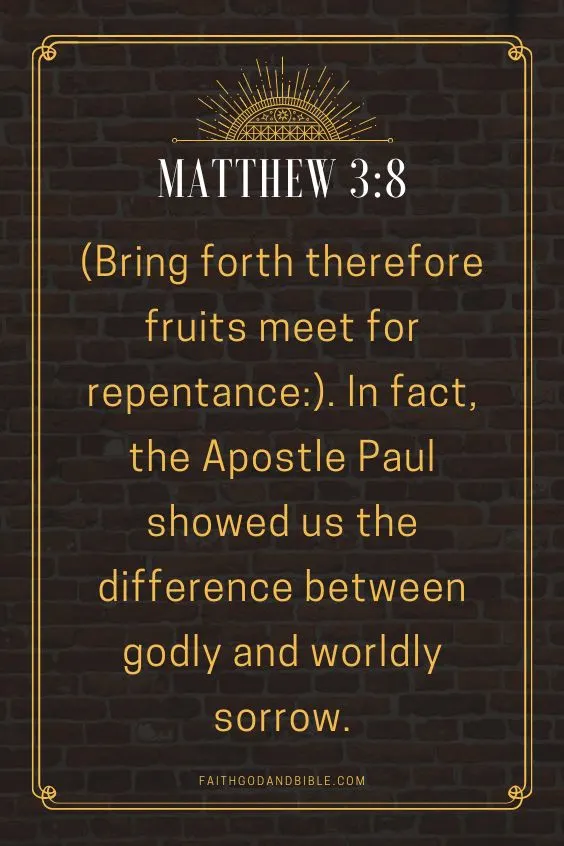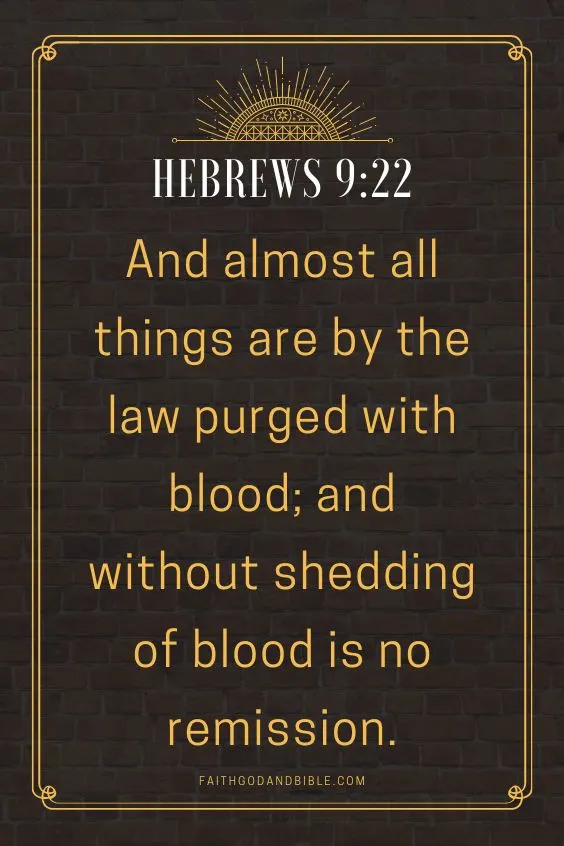The effects of sin on a person’s soul can be overwhelming. Both the religious and non-religious can experience being plagued by guilt due to something wrong that has been done. This is the work of conscience. Conscience is that part of the human soul that gives us the awareness of what is morally right or wrong. When we have done what is right, it feels rewarding, but when we have done what is wrong, it makes the mind restless with guilt. However, the intensity of conscience is dependent on how established the person’s moral values happen to be. The greater the moral awareness, the greater the conscience. In Christianity, our moral awareness is derived from our knowledge of the Scriptures. When sin is committed, it produces a feeling of shame and guilt, which can easily turn into feelings of condemnation. Thus, there is the need for confession. Confession is incredibly helpful when we have done something wrong. It is an act of humility in acknowledging and taking responsibility for one’s sins rather than making excuses or justifying them. But to whom should we make confessions? The Roman Catholic church follows the practice of confessing to a priest for the absolution of one’s sins, but is that really biblical?
There is nothing inherently wrong with confessing one’s sin to a priest or any church leader, but the Bible explicitly tells us that we must confess our sins to God (1 John 1:9 If we confess our sins, he is faithful and just to forgive us our sins, and to cleanse us from all unrighteousness.) and to fellow believers (James 5:15-16). Forgiveness is given by God and from the specific people whom we have offended.

What Does The Bible Say About Confession To A Priest?
While it is good to confess our sins to church leaders, the Bible does not say that our confession should be limited to them. It is not people, regardless of their spiritual leadership, who can absolve sins, but only God himself. First and most importantly, we must confess our sins to God.
According to 1 John 1:9, our God always values what is right according to His justice, and it’s scary to fall under His wrath. But when we humble ourselves and confess our sins to Him, He is faithful enough to forgive and make us right again. Forgiveness is dispensed by the one we ultimately have offended with every sin we commit. One of the best demonstrations of this in the Bible is in the Psalm of David.
In Psalm 51, when David committed adultery with Bathsheba and murdered her husband Uriah, he was confronted by God through the prophet Nathan. He did not respond in arrogance and anger, like that of a worldly king, but with humility and repentance. He confessed his wrongdoing before God with a broken and repentant heart. He admitted that his heart needed to be cleansed by God and he asked for the restoration of his purity. Most notably, he acknowledged that his sins had offended God and sincerely asked God for forgiveness.
Just as we confess our sins to God, we must also learn to confess them to other believers. In doing so, it helps us walk in godly accountability. Sometimes it is easier to confess our sins before God and acknowledge that we have done something wrong, but we may find it very difficult to open up to fellow believers. This could be due to either shame, the fear of being judged, or pride.
James 5:15-16 encourages us to confess our sins to fellow believers so that we can be prayed for. Confession can be done with spiritual leaders, but it can also be done with other members of the church. James tells us that we should look for trustworthy brothers and sisters in the church who are willing and loving enough to listen and intercede for us in our struggles against sin. They stand as our accountability and prayer partners. However, we must also be wise and discerning in choosing whom we confess to. They must be people who are able to give Godly counsel, can help in practical ways, and are willing to stand in the gap for you in prayer.
Many times, because of the lack of personal discipline and conviction, we easily give in to compromise. Having a persistent, wise, and loving accountability partner can greatly help us win in our daily struggles against sin.
Another thing about confessing to other believers is that we must confess our sins to the people we have offended and thus pursue forgiveness and reconciliation. Settling our differences with other people honors God. After all, Jesus said that the second greatest commandment of loving your neighbor is just like the first greatest commandment—loving God. So, as we seek unity even in conflict, we are showing love to others; in doing so, we also show love to God.
Now, the most important thing about confession is repentance. We confess not just for the sake of clearing our conscience but are actually admitting and taking responsibility for the hurt we have done against God and other people. Confessing without true repentance is just talk, but no walk. Jesus tells us that we must prove our repentance by showing it with fruits or acting upon it (Matthew 3:8 Bring forth therefore fruits meet for repentance:). In fact, the Apostle Paul showed us the difference between godly and worldly sorrow.

What Does The Bible Say About Confession To A Priest?
According to 2 Corinthians 7:10-11, worldly sorrow is when one is sorry because one got caught in sin. One is not really sorry but is merely forced to apologize because of shame. There is a lack of true repentance in worldly sorrow, and it only leads to spiritual or relational death. Godly sorrow is when one is truly sorry for the offense that was made; such sorrow is always done with repentance, which helps lead a person away from sinning again. It is about showing that we are willing to do everything necessary to make things right.
So in our pursuit of God’s righteousness, to become like Christ, we must learn to make it a discipline to confess our sins to God and confess them to fellow believers so that they can also intercede for us. Rather than just saying sorry, we must demonstrate real repentance to God and others. In Christ, we can always find forgiveness and a renewal of our heart and soul.
We learn from (2 Chronicles 7:14 If my people, which are called by my name, shall humble themselves, and pray, and seek my face, and turn from their wicked ways; then will I hear from heaven, and will forgive their sin, and will heal their land), as God’s people, that when we humble ourselves before Him, confess, pray, seek Him out earnestly, and repent, God promises to listen to our cries and forgive our sins, bringing healing and restoration upon us.

What Does The Bible Say About Confession To A Priest?
Do you have to confess to a priest?
Confession is beneficial to our souls, but it is only healthy and beneficial when done in a biblical way. It allows a person to move from trying to find an escape or solve their guilt problem alone to a posture of dependence upon God’s mercy, grace, and wisdom. We must recognize that on our own, we are powerless against the grip of sin. The Bible teaches us to confess our sins to God and to fellow believers, but what about priests? Is it necessary to confess our sins to a priest?
Scripture never mentions anything about the act of confessing to a priest for the absolution of sin. In the Old Testament, priests represented the Israelites before God in temple sacrifices for worship and sin atonement. In the New Testament, there was no longer the need for such temple priests.
The priests in the Old Testament were people called by God to serve as mediators between God and His people. They represent God’s people in offering temple sacrifices for the atonement of sins, but they merely foreshadowed the coming of the Great High Priest, Jesus Christ (Hebrews 4:14-16). Jesus was also the ultimate sacrifice to atone for our sins, once and for all.
The author of the epistle in Hebrews 10:10-18 clarified that priests stood and did their religious duties in the Old Covenant, repeatedly offering the same sacrifices that did not really take away our sins. Those sacrifices were just a regular reminder of how ugly and costly sin is. But when Jesus Christ came, our Great High Priest offered Himself to God on the cross as the one sacrifice that could fully pay the penalty of humanity’s sin for all time.
Since Christ finished the work of the priests by becoming the ultimate sacrifice and the ultimate mediator between man and God, the work of earthly priests has been rendered obsolete. In fact, as Christ’s righteousness was imputed to all who accept Him as Lord and Savior, all believers have now become priests.
In 1 Peter 2:5-9 and Revelations 1:6, 5:10, these Scriptures tell us that we, as God’s redeemed people, are being built into a spiritual house, serving as God’s holy priests and offering acceptable sacrifices because of Jesus Christ. Through Him, we have become “holy priests” and “royal priests” in the kingdom of priests that He established by His blood.
Therefore, priests are no longer needed in the New Covenant. Christ is the only mediator between God and man—no one else. In fact, the New Testament only mentions apostles, prophets, evangelists, pastors, teachers, elders, and deacons in the administration of the church, but no priests.
When it comes to the confession of our sins, the Bible only teaches us to go to God and other mature Christians, not necessarily spiritual leaders. In that way, we can receive guidance, correction, encouragement and prayer.
The Roman Catholic church practices the confession of sins to priests because of how they interpret John 20:23. This verse is about the time when Jesus appeared to His disciples after the resurrection and He told them that if they forgive anyone’s sins, they will be forgiven, but if they choose not to forgive them, they will also not be forgiven. As the Roman Catholic church believes that priests are successors of the authority given to the apostles, they have the authority to absolve sins. So, does this mean that Catholic priests can really forgive sins when we confess to them?
First of all, one must understand that Jesus did not talk about the succession of the authority of the apostles. Besides, as mentioned above, priests are no longer necessary in the New Covenant.
Secondly, God alone has the authority to forgive sins, yet Jesus taught that we must forgive those who offend us personally. But as to forgiveness for eternal redemption, only God can give that. In fact, there is no forgiveness of sins or redemption apart from the blood of Christ [Hebrews 9:22 And almost all things are by the law purged with blood; and without shedding of blood is no remission.].

What Does The Bible Say About Confession To A Priest?
In Luke 5:20-24, when the Pharisees saw that Jesus forgave a man’s sins, they regarded Him as blasphemous since they knew that only God could forgive them. Jesus did not deny His deity but confirmed it and said that He had the authority to forgive sins.
With that in mind, John 20:23 does not really talk about the absolution of sins through confession to a priest and fulfilling their required penitence; it is all about Jesus sending the disciples to preach the Good News of God’s forgiveness and redemption. As we preach the Gospel, we are opening the way for people to receive forgiveness for their sins and reconciliation with God. However, if we remain complacent by not sharing the Gospel, we are closing the opportunity for others to know and receive God’s forgiveness.
We learn from Hebrews 4:15-16 that if you have been plagued by the feeling of condemnation, you don’t have to remain stuck in such an overwhelming state but can come to Christ. As you confess your sins to Him and allow other faithful and mature Christians to be used by God for much needed help, Christ will assure you that He empathizes with your burdens. Jesus, our High Priest, understands our weaknesses, for he faced all the same tests we do and has been tempted in every way but remains without sin. This is our confidence that through Him, we can approach God and receive forgiveness through the abundance of His mercy and grace.
Leave a comment